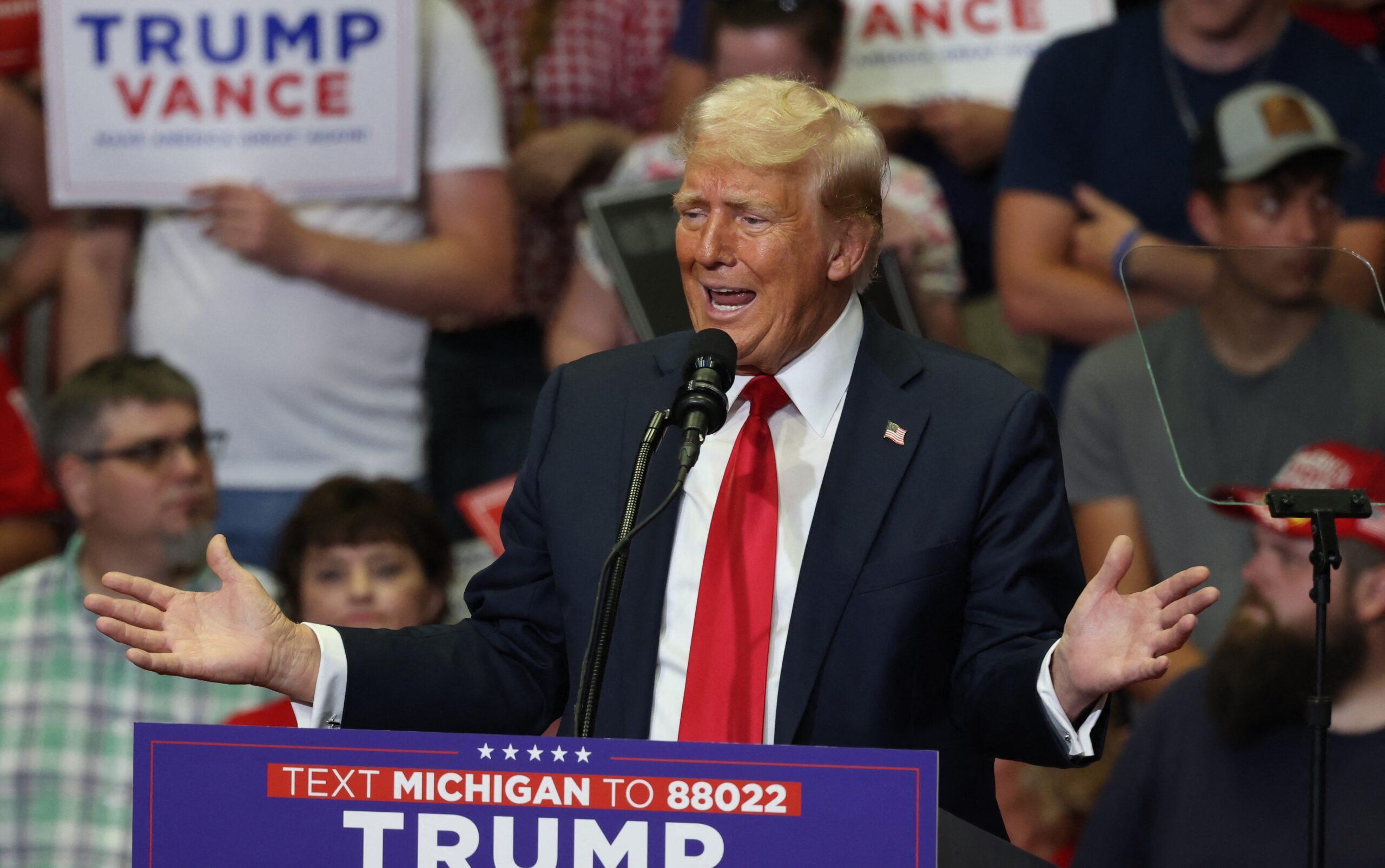Pesticide Debate: Trump Officials Rebuff RFK Jr.'s Assertions

Table of Contents
RFK Jr.'s Claims Regarding Pesticide Harm
Robert F. Kennedy Jr. has been a vocal critic of pesticide use, alleging widespread harm caused by specific chemicals.
Specific Pesticide Targets
Kennedy Jr. has specifically targeted several pesticides, focusing on their alleged links to various health problems. Prominent among these are glyphosate, the active ingredient in Roundup, and neonicotinoid insecticides. He argues these chemicals pose significant risks to human health and the environment.
- Glyphosate Dangers: Kennedy Jr. points to studies suggesting a link between glyphosate exposure and increased cancer risk, particularly non-Hodgkin lymphoma. He emphasizes the widespread use of glyphosate in agriculture and its potential for environmental contamination.
- Neonicotinoid Effects: He also highlights the potential neurotoxic effects of neonicotinoids on bees and other pollinators, indirectly linking their use to declines in bee populations and potential impacts on human food supplies.
- Broader Claims: Beyond these specific chemicals, Kennedy Jr.’s arguments often encompass a broader critique of the pesticide industry, alleging a lack of transparency and insufficient regulation. He cites numerous studies, both epidemiological and toxicological, to support his claims, although the interpretation and validity of these studies are often disputed.
Trump Administration's Counterarguments
The Trump administration, through the Environmental Protection Agency (EPA), largely rejected Kennedy Jr.'s assertions.
Scientific Basis for Current Regulations
The EPA maintains that current pesticide regulations are based on sound science and rigorous risk assessments.
- EPA Regulatory Processes: The agency highlights its multi-step process for pesticide approval, including extensive toxicological testing, environmental risk assessments, and public comment periods.
- Supporting Studies: The EPA cites numerous studies that, in their interpretation, demonstrate the safety of glyphosate and neonicotinoids at approved usage levels. They emphasize the importance of considering dose-response relationships and the limitations of epidemiological studies.
- Data Interpretation Differences: A key point of contention is the interpretation of existing data. The EPA argues that Kennedy Jr. selectively uses studies and misrepresents the findings of others to support his claims. The differing methodologies and interpretations form a core part of the ongoing “Pesticide Debate.”
The Role of Scientific Evidence and Data Interpretation
The "Pesticide Debate" is significantly complicated by the inherent challenges in definitively proving causality in epidemiological studies related to pesticide exposure.
Discrepancies in Scientific Findings
Establishing a direct link between pesticide exposure and specific health outcomes is extremely challenging.
- Causality vs. Correlation: Many studies show correlations between pesticide exposure and health problems, but demonstrating a causal relationship requires controlling for numerous confounding factors, such as genetics, lifestyle, and other environmental exposures.
- Limitations of Study Designs: Epidemiological studies often rely on retrospective data and self-reported exposures, introducing potential biases and inaccuracies. Different study designs may also yield differing results, leading to conflicting conclusions.
- Data Interpretation Bias: It’s crucial to acknowledge the potential for bias in interpreting scientific findings, both consciously and unconsciously, influenced by pre-existing beliefs and agendas. This is a critical element of the "Pesticide Debate."
Political and Ideological Dimensions of the Debate
The "Pesticide Debate" is not solely a scientific discussion; it is deeply intertwined with political and ideological viewpoints.
Influence of Political Affiliation on Perspective
Political affiliations significantly influence public perception of pesticide risks.
- Political Polarization: The issue has become highly polarized, with environmental advocacy groups often aligning with concerns raised by Kennedy Jr., and agricultural interests tending to defend current regulations.
- Lobbying and Advocacy: Both sides of the debate are heavily influenced by lobbying efforts from various interest groups, impacting public discourse and policy decisions.
- Politicization of Science: The politicization of the issue risks undermining objective scientific evaluation, leading to further confusion and hindering the search for evidence-based solutions.
Conclusion
The "Pesticide Debate" remains complex and multifaceted, highlighting the challenges of navigating conflicting scientific evidence and differing political agendas. While RFK Jr. raises valid concerns about potential pesticide harms, the Trump administration's counterarguments highlight the necessity of rigorous scientific evaluation and established regulatory processes. Understanding the nuances of this debate necessitates a critical analysis of the scientific data, acknowledging both uncertainties and established findings. To stay informed on this evolving "Pesticide Debate," continue to follow credible scientific sources and engage in thoughtful discussions about the responsible use and regulation of pesticides.

Featured Posts
-
 San Jose Earthquakes Scouting Report Key Players Formation And Potential Threats
May 16, 2025
San Jose Earthquakes Scouting Report Key Players Formation And Potential Threats
May 16, 2025 -
 Padres Aim For Sweep Arraez Heyward Key To Victory
May 16, 2025
Padres Aim For Sweep Arraez Heyward Key To Victory
May 16, 2025 -
 Donald Trump Interview Jeffrey Goldberg Shares Unexpected Observations
May 16, 2025
Donald Trump Interview Jeffrey Goldberg Shares Unexpected Observations
May 16, 2025 -
 Paddy Pimbletts Post Fight Weight A 40lb Increase Explained
May 16, 2025
Paddy Pimbletts Post Fight Weight A 40lb Increase Explained
May 16, 2025 -
 Unlocking Opportunities Become An Amazon Locker Host Today
May 16, 2025
Unlocking Opportunities Become An Amazon Locker Host Today
May 16, 2025
